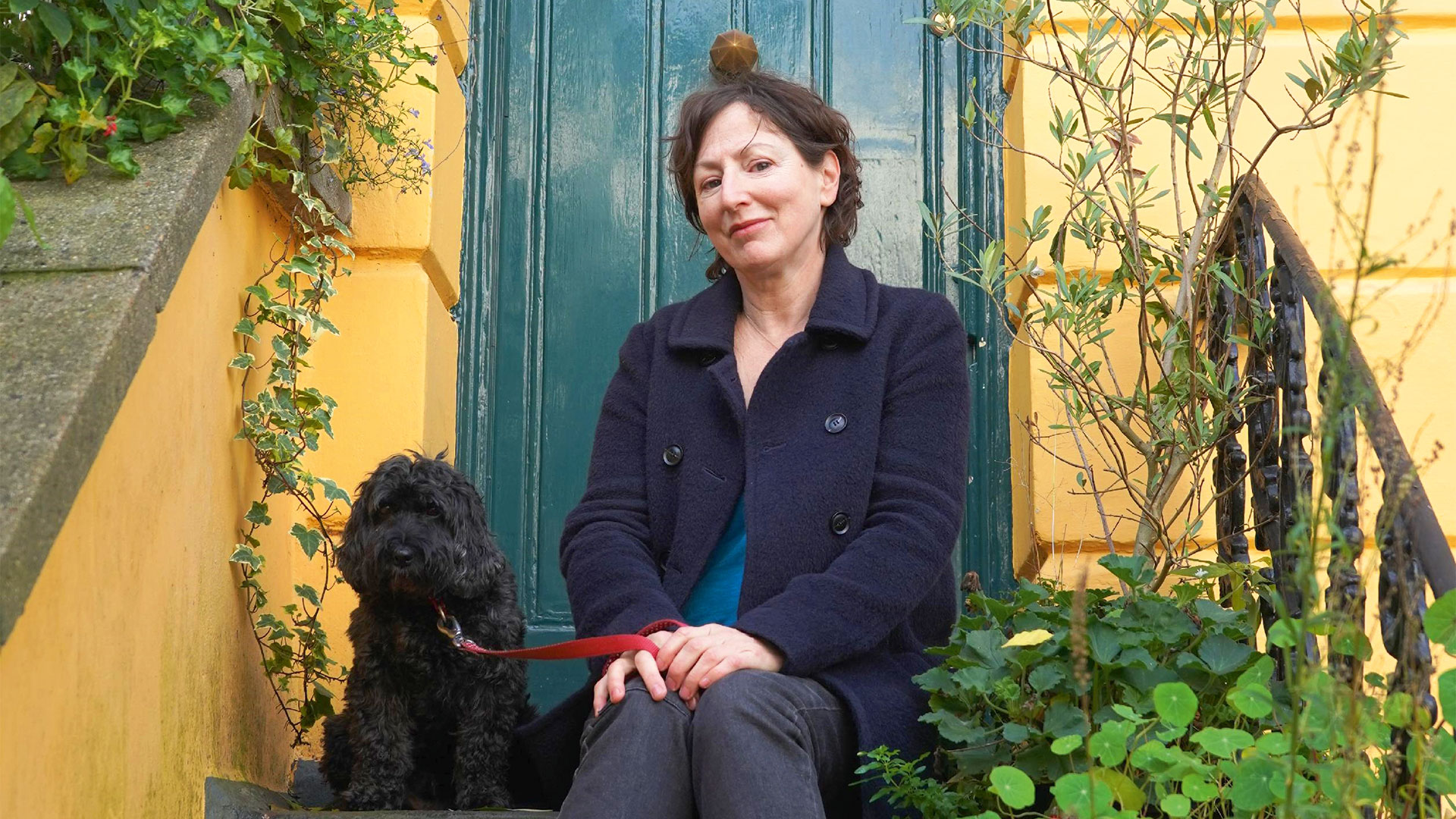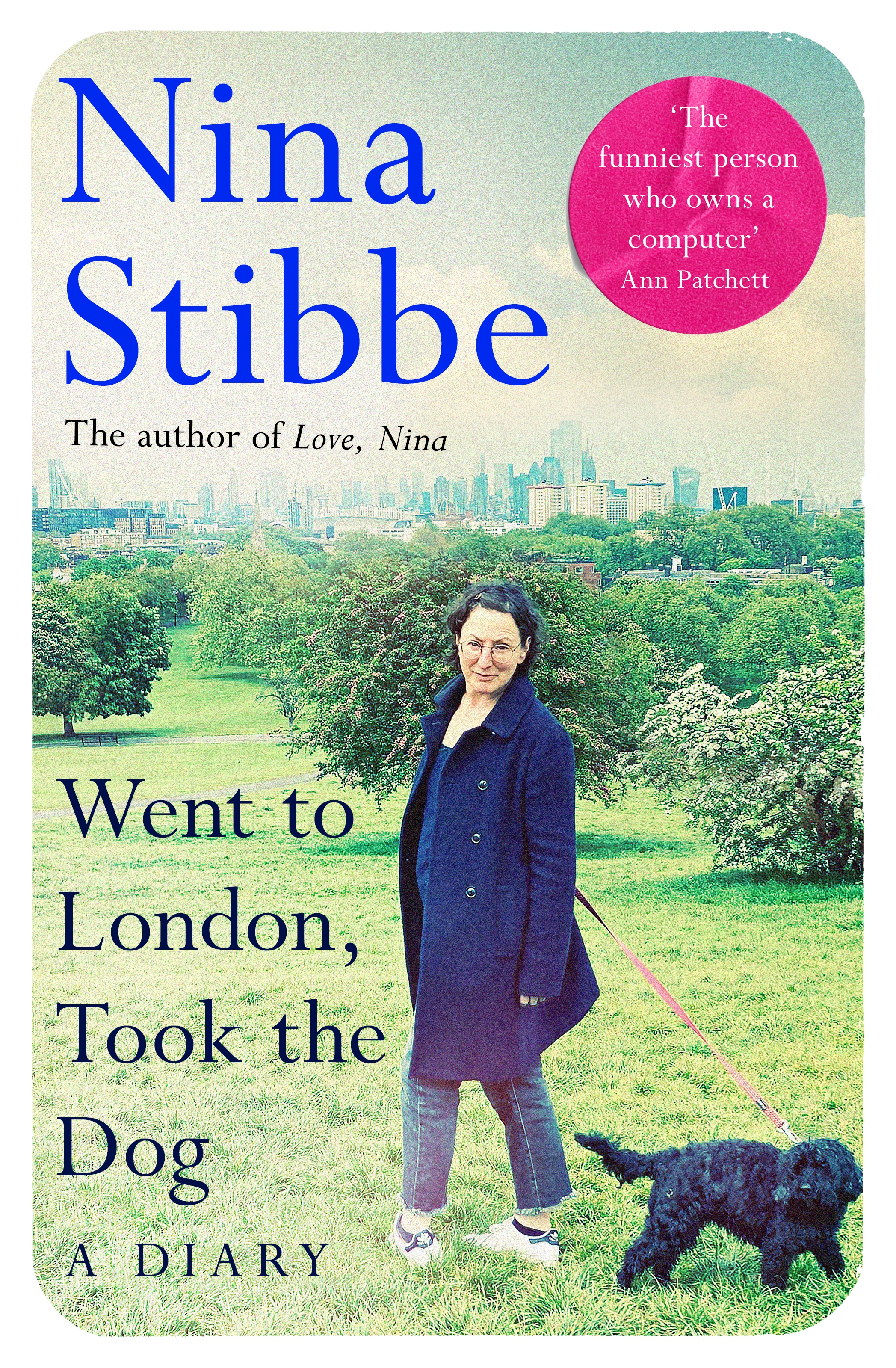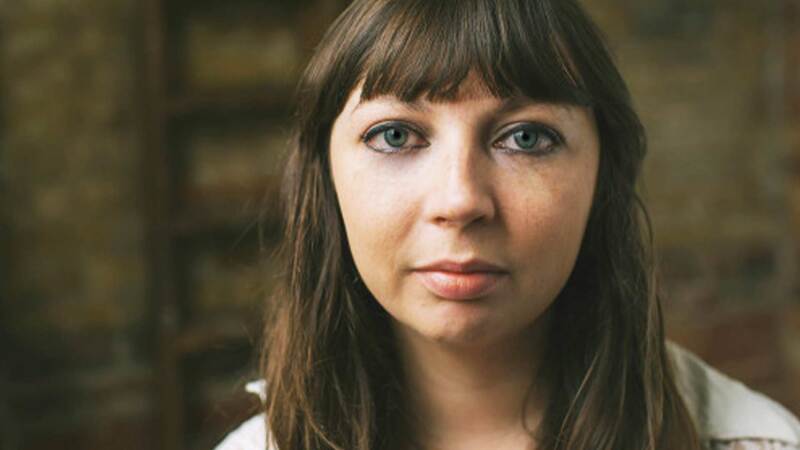You are viewing your 1 free article this month. Login to read more articles.
Nina Stibbe talks about her latest non-fiction gem, 10 years after Love, Nina

Caroline Sanderson is Associate Editor of The Bookseller, and since 2000, the magazine's non-fiction previewer. In 2022 she was Chair of ...more
Ten years on from the publication of Love, Nina, Nina Stibbe regales readers with a gem of a diary.

Caroline Sanderson is Associate Editor of The Bookseller, and since 2000, the magazine's non-fiction previewer. In 2022 she was Chair of ...more
Ten years ago this month, an utter delight called Love, Nina, by a first-time author from Leicestershire, landed on my desk. Writing in my preview for November 2013, I described it as “Adrian Mole meets Mary Poppins, mashed-up in literary North London”. Acclaim, awards, four novels and a BBC TV adaptation of Love, Nina by Nick Hornby all followed, and Nina Stibbe is now firmly established as one of our most beloved comic authors.
A decade later comes another non-fiction gem, Went to London, Took the Dog. This marvellously entertaining diary of Stibbe’s year as a “60-year-old runaway” finds her back in London, 20 years after moving away. Accompanied by her cockapoo, Peggy, she rents a room in the house of writer Deborah (Debby) Moggach in Camden, on a year-long break from married life in Cornwall, or maybe even a fresh start entirely; she isn’t yet sure.
One of the chief joys of Went to London, Took the Dog is the diary form itself, both compulsively readable and eminently dippable. When we speak via Zoom, Stibbe from her home in Falmouth explains how she came to keep the diary. “I’m an obsessive note-taker and I’ve got endless notebooks full of notes but they are not very organised. So for this year in London, instead of just scribbling things down, I thought I’d keep a diary because I knew I’d want to look back on it.”
Inspired, she tells me, by Love, Nina regular Alan Bennett’s own “mish-mash” diaries, Stibbe’s entries blend comments on “Rishi Sunak and other things that were bothering me on a global or political scale” with details of funny happenings in her own life. Once again, Stibbe’s superb instinct for what is ordinary but also hilarious is richly on display.
When I bring this up, Stibbe provides a classic example of how her humour so often derives from what she chooses to mention. After reading the proof, her mother took her to task for writing in the book about a soap that smelt of pork, while failing to name-check the posh box of soaps Elspeth had given her daughter as a moving-to-London gift. Stibbe replied: “Mum, if I write in my diary, ‘Mum gave me three Bronnley lemon soaps’, that won’t be news to me when I read it back. What I want to remember is the grapefruit soap that when it bubbled up smelled of bacon.”
Stibbe had no thought of publishing the new diary, but then over tea with her long time editor, Picador m.d. Mary Mount, she found herself telling a story about needing to wrap up a present in her new abode. “I said to Mary: ‘This is my life now, I’m not at home any more. I don’t know where to find the Sellotape.’”
After scrabbling around in a “manky drawer full of rusty nails and Rizla papers”, Stibbe found some Sellotape but also came across Debby Moggach’s OBE. “So I told Mary that I’d texted Debby and said: ‘I’ve just found your OBE rotting away’. And that Debby had replied: ‘Good, maybe now you’ll respect me’.” Understandably, Mount’s response to this priceless anecdote was to say “I hope you’re writing this down”; and then later negotiate a publishing contract for the diary.
Stibbe’s London student children, Eva and Alf, also gave their consent to their appearances throughout the diary, and wonderfully so because the exploits of the Generation-Z characters in the book are one of its joys
Alongside Moggach, the book—like its predecessor Love, Nina—features a cast of literary characters including Nick Hornby, Sathnam Sanghera, Meg Mason, Cathy Rentzenbrink and Max Porter, as well as names familiar from Love, Nina, including Mary Kay-Wilmers and her now grown-up son Sam Frears whose nanny Stibbe used to be. In the hands of any other writer, this would come across as name-dropping, but Stibbe’s genius once again is to focus on anything but their literary doings. “It wouldn’t be of any interest to me to say that someone was a ‘fantastic writer and I’ve had a lovely meal with them’. With Nick Hornby, I’m not going to write: ‘We talked interestingly about Robert Caro and Bob Gottlieb’. No, instead I record the fact that Nick had a custard-flavoured vape.” Another writer (you’ll have to read the book to find out which) gets outed as the owner of a loofah.
Despite such teasing references, it speaks volumes that none of the above—when consulted for their approval—has objected to what she has written about them. Partly because, well, who wouldn’t want to be mentioned in a book by Nina Stibbe. And partly because her divine comedy always derives from a sense of mischief rather than anything mean or unkind. “That’s really important to me. And I love it when people tease me too. Everybody has to have the same treatment.”
Stibbe’s London student children, Eva and Alf, also gave their consent to their appearances throughout the diary, and wonderfully so because the exploits of the Generation-Z characters in the book are one of its joys. Says Stibbe: “I love young people. I find them absolutely reassuring and I just love watching them. And I also really love the juxtaposition in the book of me with my bloody HRT, and my kids smashing down a beer or zooming off to a nightclub on their Lime bikes”.
As publication approaches, for which she is embarking on a nationwide tour of bookshop visits and events, Stibbe is still agog at the accidental serendipity of it all. “In 1982 I left my little Leicestershire backwater to go and live in north London with a literary lady. And then exactly 40 years later I left my little Cornish backwater and went to live with another literary lady in north London. That’s nuts!”
To say that Went to London, Took the Dog is Stibbe’s most serious book yet would risk doing it an injustice because it is very, very funny. But there’s also an affecting poignancy running through it which has something profound to tell us about what we should truly cherish. Enduring friendships for one thing, and perhaps also the energising company of those younger than us, and the sustaining rhythms of everyday life. The book is also an all too rare celebration of mid-life female resilience. “I was very conscious of wanting to write about me living and changing and forging forward in this third act of my life”, reflects Stibbe. “If this book has any use it’s to shine a light on the fact that we live quite long lives now. And so we might all have another episode, another chapter in us.”









